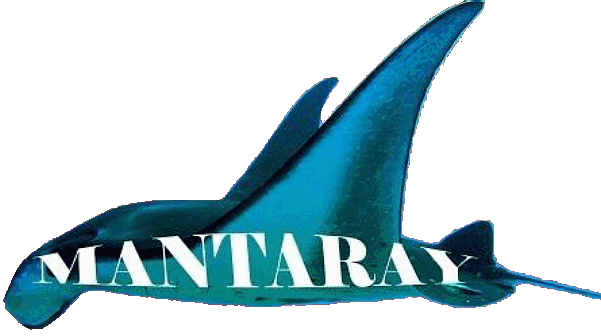|
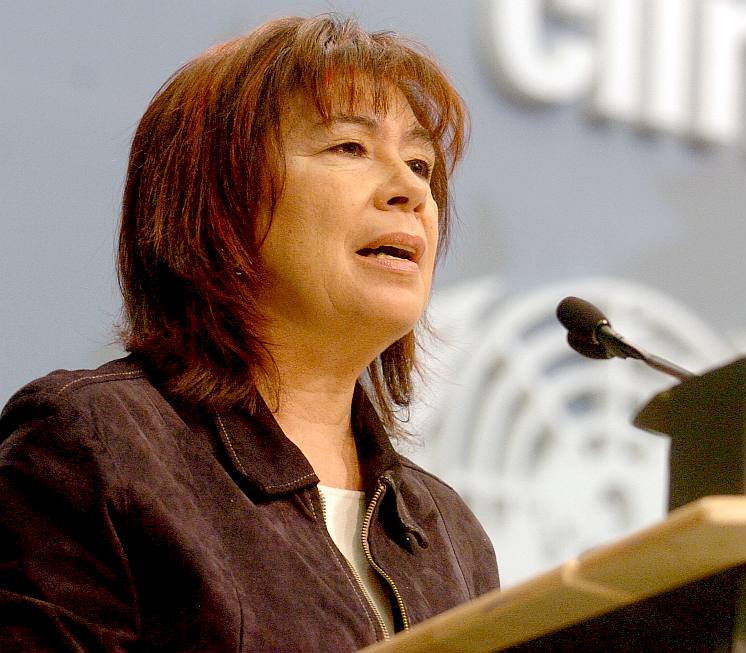
La miembro del Consejo de Seguridad Nuclear (CSN) y exministra socialista de Medio Ambiente, Cristina Narbona, ha denunciado que el Gobierno ha ejercido "presión" para que el organismo se pronunciara hoy a favor de la continuidad de la central de Garoña (Burgos).
Narbona y la también consejera socialista Rosario Velasco han votado hoy en contra de la petición de Nuclenor (propietaria de Garoña) de pedir un plazo adicional de un año para poder considerar la renovación de su licencia de explotación, mientras que los dos consejeros del PP -Fernando Castelló y Fernando Martí- y el de CiU -Antonio Gurrí- han votado afirmativamente.
El próximo lunes, Velasco, Narbona y Gurrí presentarán sendos votos particulares para explicar el sentido de sus posiciones.
En declaraciones a Efe, Narbona ha tachado las "presiones" del Ministerio de Industria de "intolerables" e "injustificables" y ha afirmado que el Gobierno ha utilizado el Consejo "para intereses económicos".
"Es un ataque la independencia del Consejo de Seguridad Nuclear que no se justifica", ha afirmado la exministra, en cuya opinión Nuclenor (participada al 50 % por Endesa e Iberdrola) podría haber cesado su actividad el próximo 6 de julio como estaba previsto y pedir, a posteriori, una renovación de la licencia de explotación.
Además, ha dicho que ha supuesto el "desprecio olímpico" de 3.000 horas de trabajo invertidas por los técnicos del CSN desde enero último para preparar el procedimiento de cese de explotación de la central.
Según Narbona, lo ocurrido con Garoña es un "precedente malo", porque significa dar "autorizaciones exprés al gusto del consumidor" y eso "va en contra de todas las prácticas y evolución del CSN".
"Preocupa que esta decisión forzada por el Gobierno reste credibilidad al Consejo de Seguridad
Nuclear", un organismo autónomo e independiente que solo rinde cuentas al Parlamento.
Cristina
Narbona was born on the 29th of July 1951 in Madrid. She is a Spanish Socialist Workers' Party politician. Since 18 April 2004 until April 2008, she was the Minister of Environment in the government of José Luis Rodríguez Zapatero. She is a trustee of the
Fundacion IDEAS, Spain's Socialist Party's think tank. In a 2002 interview with Telemadrid, Narbona argued that the price of
housing in Spain was excessive and out of reach of young people, and called for more government aid in the housing sector.
Narbona is an opponent of nuclear power and supports the gradual closure of nuclear plants in
Spain. She has also supported the implementation of the Kyoto Protocols in
Spain. 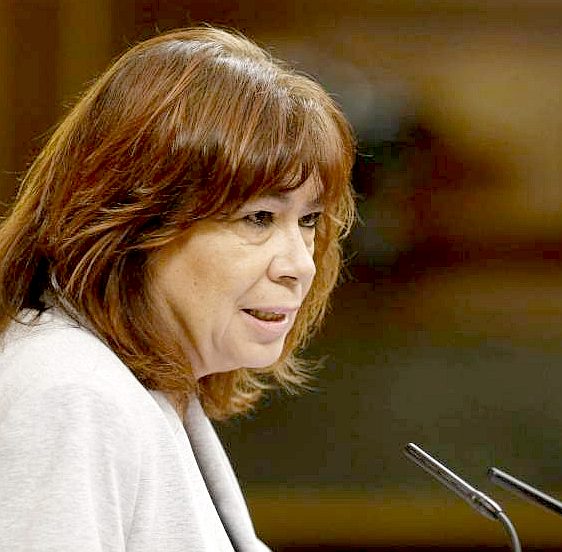
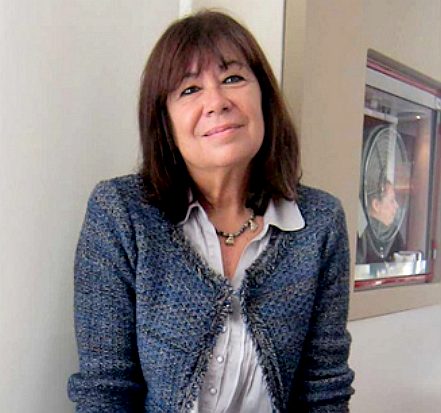
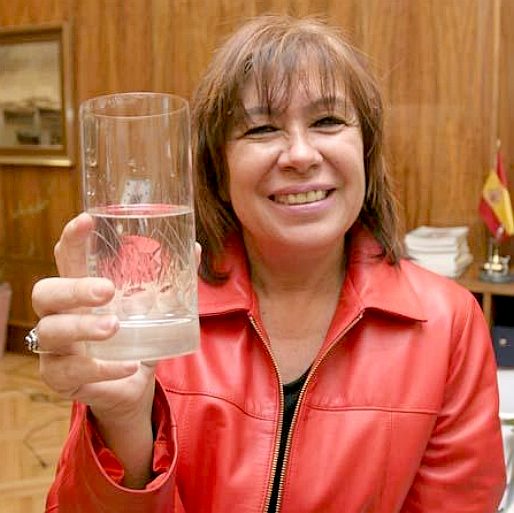
AUGUST 2007 - Recent scientific reports have warned of the enormous environmental problems that Spain faces as a result of pollution, coastline development, and global warming. One report says that nearly 90 percent of Spanish cities exceed the legal air pollution limits, which are responsible for up to 16,000 deaths each year. Greenhouse gas emissions have risen by 52 percent since 1990, making Spain the most polluting country in Europe. Another report shows how unrestricted development along Spain’s
coastline - one third of it has been built up in the last 20 years - has destroyed some of the country’s most important natural habitats.
One issue not widely recognised but equally important is the risk that a large part of Spain could become a desert. Scientists at the United Nations Convention to Combat Desertification
(UNCCD), which is holding its annual conference in Madrid in September, warn that the country could see a massive spread of deserts as a result of continuing disregard for the
environment - a phenomenon made worse by global warming. One third of Spain is in danger of turning into desert, and a further third is under threat.
Research suggests that more than 90 percent of the Canary Islands, and land bordering the Mediterranean are at high risk, but that rises to almost 100 percent in Alicante and
Murcia. Other regions at risk are Castilla La Mancha (44 percent at high risk of desertification), Catalonia (42 percent), Madrid (37 percent), Aragón (29 percent), the Balearic Islands (25 percent) and Andalucía (22 percent).
Desertification usually begins by heavy grazing and woodcutting or forest fires, followed by wind and water erosion on cultivated land. It is made worse by drought and the scarcity of water arising from the demands of tourism,
urbanisation, and, above all, intensive irrigated agriculture.
Spain, which is only separated from North Africa’s deserts by the narrow Straits of the Gibraltar sea channel, is often affected by drought, with over half the years between 1880 and 1980 classified as dry or very dry. The period from 1992 to 1995 was one of the driest in the century, with resulting crop losses of 30-50 percent. However, this was surpassed by the drought of 2005-2006, which the government described as one of the “worst ever” and was only recently declared at an end by Environment Minister Cristina
Narbona.
HISTORY
At the age of 12 Cristina emigrated to Rome with her parents, where she obtained a doctorate in economics before returning to Spain in 1975. Subsequently she taught at the University of Seville and served in the regional government of Andalucia. In 1993 she joined the Spanish Socialist Workers' Party (PSOE). She served in the local government of Madrid in several capacities. She has represented Madrid in the Spanish Congress since 2000.
Between 2004 and 2008 she served as Environment Minister, where she prioritised policies to reduce greenhouse gas emissions and develop renewable energy, and promoted linkages between social and environmental programmes. In 2008 she moved to
Paris to become Spain’s Ambassador to the OECD.
Dr Narbona recently served as a member of both the UN Secretary-General’s High-Level Panel on Global Sustainability and the High-Level Taskforce for
Climate Services of the World Meteorological Organisation. She holds a doctorate in economics from the University of Rome, and was a Professor at the
University of Seville for seven years.
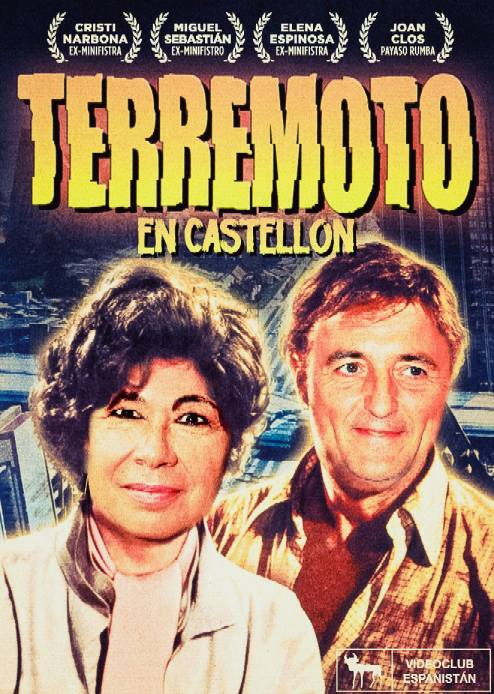
SPOOF
MOVIE - Cristina
Narbona and Miguel
Sebastián in Earthquake
in Castellón
THE
COMMISSIONERS
|

|

|

|

|

|

|

|
|
Carol
Browner |
Victor
Chu |
Obiageli Ezekwesili |
Luiz
Furlan |
Vladimir
Golitsyn |
Robert
Hill |
Yoriko
Kawaguchi |
|
. |
. |
. |
. |
. |
. |
. |
|

|

|

|

|

|
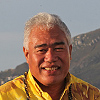
|

|
|
Pascal
Lamy |
Paul
Martin |
Sri
Mulyani Indrawati |
Cristina
Narbona |
Ratan
Tata |
Foua
Toloa |
Andrés
Velasco |
GOC
OBJECTIVES The objective of the Global Ocean Commission is to address
the issues herein by formulating ‘politically and technically feasible
short, medium, and long-term recommendations. The work of the Commission thus focuses on four key tasks:
1. To examine key threats, challenges, and changes to the ocean in the 21st century, and identify priority issues. The Commission will utilise both scientific and economic evidence, drawing on existing reports from world experts, as well as commencing original research in partnership with other organisations.
2. To review the effectiveness of the existing legal framework for the high seas in meeting these challenges. According to the Commission, this means a special focus on the effectiveness of regional fisheries management organisations, particularly with respect to their accountability, transparency, and performance. It also means reviewing the governance gap on biodiversity conservation and analysing options for combatting IUU
fishing. The Commission will also assess the suitability of the existing legal regime for regulating emerging uses of the global ocean.
3. To engage with interested parties around the world, as well as the general public. The Commission will connect with fishers, military and merchant navies, recreational sailors, seafood companies, conservation groups and the emergent seabed mining business. The Commission also aims to raise understanding among policymakers, economists and other groups, including the general public, of the implications should high seas issues not be reformed.
4. To make recommendations regarding ‘cost-effective, pragmatic and politically feasible reforms of high seas governance, management and enforcement.’ While the threat analysis will take account of external issues such as climate change, recommendations will focus on reforms that can be achieved by evolving high seas governance. Some may concern the fundamental legal framework under which the global ocean is governed, whereas others may focus on improving the effectiveness of existing mechanisms.

The Global Ocean Commission
Somerville College
Woodstock Road
Oxford, OX2 6HD
Tel: UK+44 (0) 1865 280747
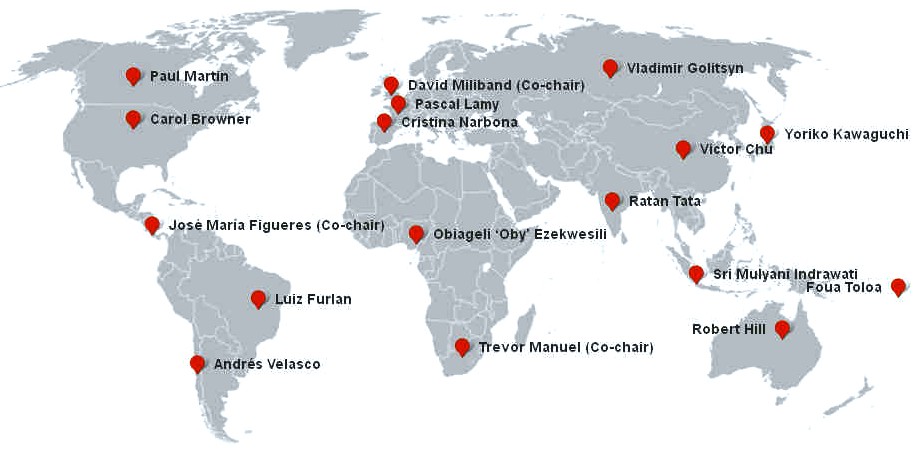
GLOBAL
OCEAN COMMISSIONERS
- A map of the world showing the location of the GOC's commissioners.
GLOBAL
OCEAN COMMISSIONERS - CO-CHAIRS
|
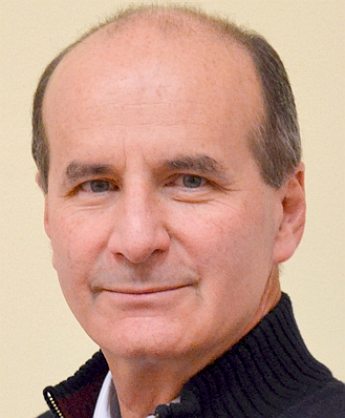
|
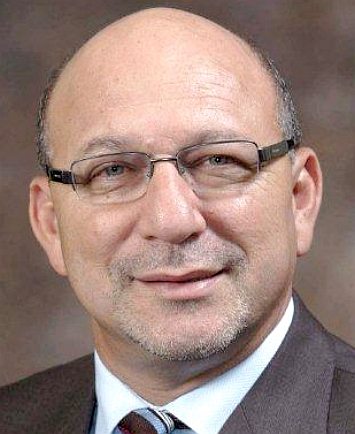
|
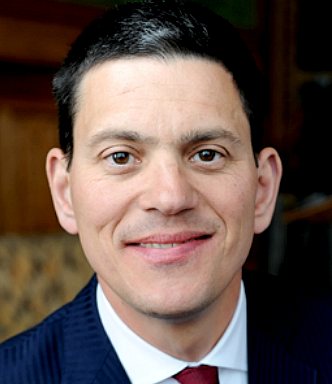
|
|
José María Figueres |
Trevor Manuel |
David
Miliband |
GOC's
SECRETARIAT
|
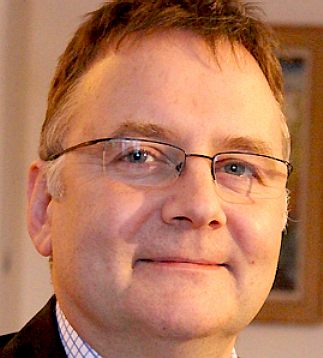
|

|

|

|

|

|
|
Simon
Reddy |
Rémi Parmentier |
Clare
Brennan |
Kristian Teleki |
Inés de Águeda |
Sarah Gardner |
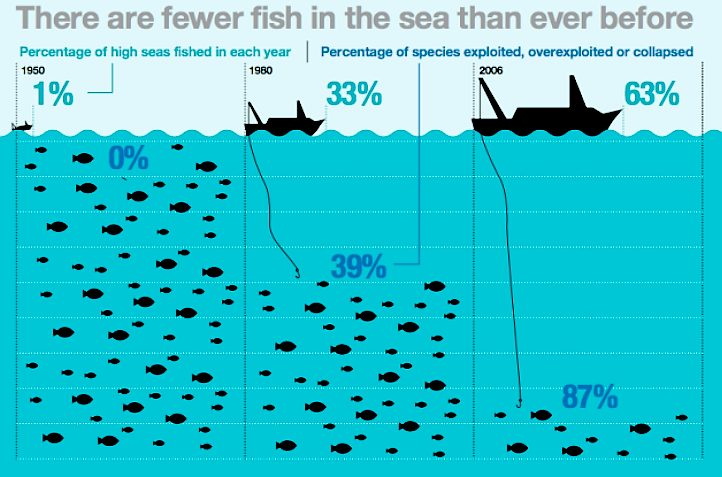
RICH COUNTRIES PAY ZOMBIES $5 BILLION A YEAR IN SUBSIDIES TO PLUNDER THE OCEANS
- If industrial fleets weren’t subsidized, they’d go out of business. Small-scale fisheries that don’t need enormous amounts of fuel to catch huge hauls of
fish - i.e. the ones using sustainable fishing practices - would then in theory thrive. Many of these fishermen are in poor countries whose governments can’t afford to compete in the industrial looting.
Worse, there’s a double-whammy zombie effect going on in the fishing context. Government subsidies to highly destructive industrial fleets don’t just deprive small-scale fishermen of finite taxpayer dollars and edge them out of the market with cheap prices; they also rob them of current and long-term fishing stocks. 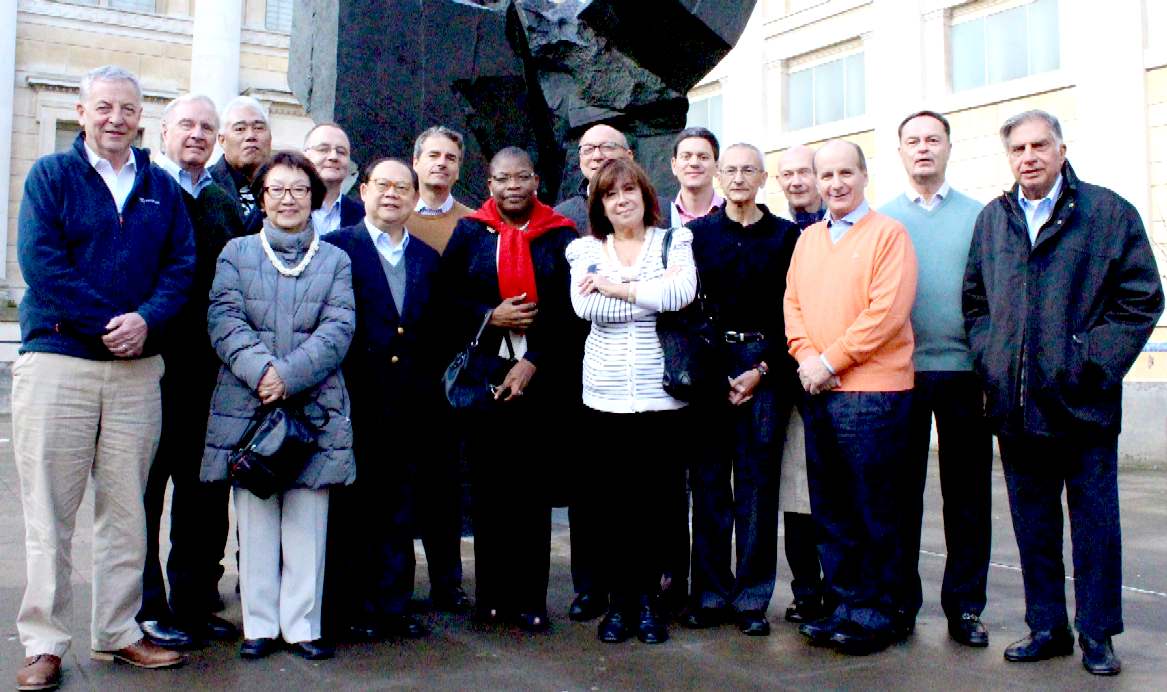
The Global Ocean Commission at its meeting in Oxford, 21st-23rd November 2013 (left to right) Robert Hill,
Paul Martin, Foua
Toloa, Yoriko Kawaguchi, Simon Reddy (Executive Secretary), Victor Chu, Andrés Velasco, Obiageli
Ezekwesili, Trevor Manuel (Co-chair), Cristina Narbona, David Miliband (Co-chair), John
Podesta, Pascal Lamy, José María Figueres (Co-chair), Vladimir Golitsyn, Ratan
Tata. 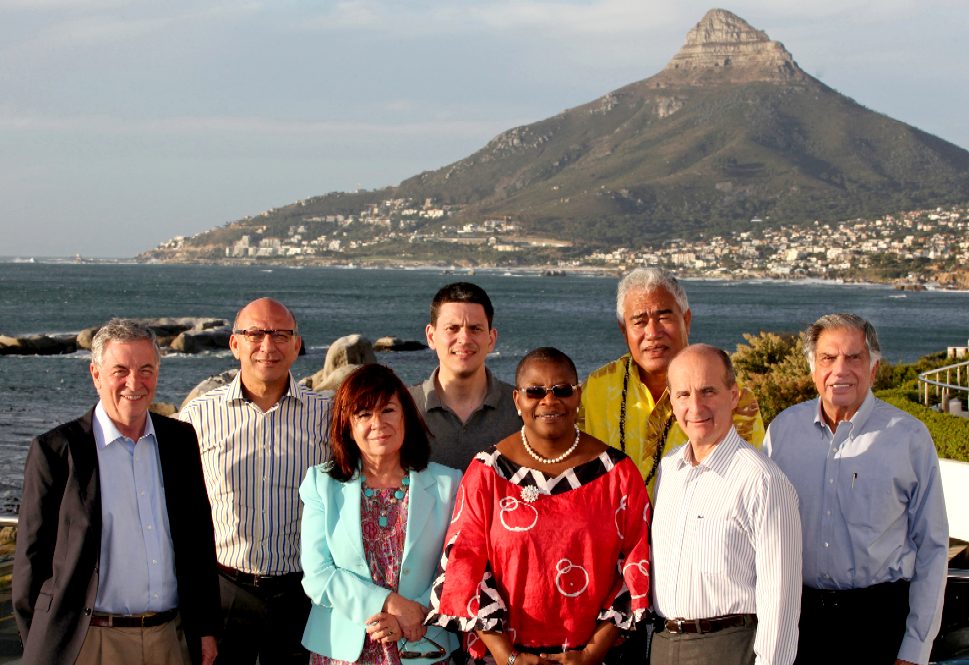
Members of the Global Ocean Commission at their inaugural meeting in Cape
Town, South
Africa. Left to right: Robert Hill, Trevor Manuel (Co-chair), Cristina
Narbona, David Miliband (Co-chair), Obiageli Ezekwesili, Foua Toloa, José María Figueres
(Co-chair), Sir Ratan
Tata.
LINKS
& REFERENCE
WSWS
August 2007
Spain water shortages
Economia
Elpais economia 2013 agencias
UN
United Natioans climate
change group members Cristina_Narbona_Ruiz
Elmundo
Espana Cristina Narbona
Global
Ocean Commissioners Christina Narbona
Twitter
Cristina Narbona
MMS
Spain
Wikipedia
Cristina_Narbona
Daily
Mail
Charles-horrified-toll-plastic-dumped-sea-Prince-Wales-plea-solve-issue-sake-future-generations
The
Guardian environment 2015 March 19
Prince-charles-calls-for-end-to-dumping-of-plastic-in-worlds-oceans
Global
Ocean Commission
https://www.wsws.org/en/articles/2007/08/span-a28.html
http://www.globaloceancommission.org/
http://time.com/3750375/environment-prince-charles-oceans/
http://news.nationalgeographic.com/2015/03/150318-prince-charles-oceans-trash-plastic-britain/
http://en.wikipedia.org/wiki/Global_Ocean_Commission
http://www.itv.com/news/2015-03-18/prince-charles-makes-impassioned-plea-for-oceans-clean-up/
http://economia.elpais.com/economia/2013/05/24/agencias/1369414347_062070.html
http://www.un.org/wcm/content/site/climatechange/pages/gsp/group-members_1/Cristina_Narbona_Ruiz
http://www.elmundo.es/documentos/2004/04/espana/nuevogobierno/cristinanarbona.html
http://www.globaloceancommission.org/the-commissioners/christina-narbona/
https://twitter.com/cristinanarbona
http://www.mma.es/
http://en.wikipedia.org/wiki/Cristina_Narbona
ACID
OCEANS - ARCTIC
- ATLANTIC - BALTIC
- BERING
- CARIBBEAN - CORAL - EAST
CHINA - ENGLISH CH
GULF
MEXICO
- GOC - INDIAN
- MEDITERRANEAN -
NORTH SEA - PACIFIC
- PERSIAN GULF - SEA
JAPAN - STH
CHINA
PLANKTON
- PLASTIC
- PLASTIC
OCEANS - UNCLOS
- UNEP
- WWF
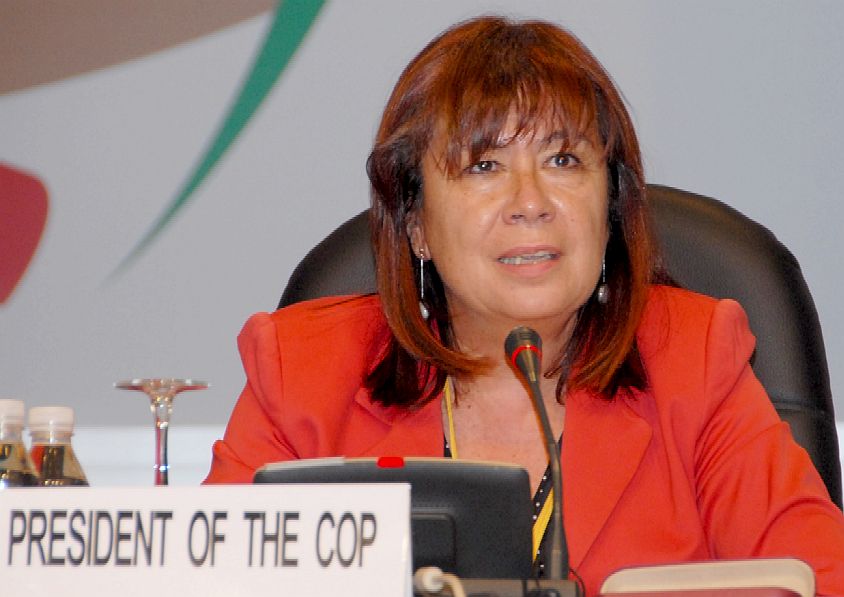
|


































